The hanging rosary under the rearview mirror sways according to the car’s movements. The road is winding and empty through the valley, the air stands and the team doesn’t talk. It’s heartwarming to see this religious sign in front of our eyes to remind us that God is protecting us… no matter what happens.
We are in the South Lebanon region, heading towards a series of villages along the border with Israel and in the middle of an area controlled by a pro-Iranian Shiite armed group, The Hezbollah.
The declaration of the establishment of the state of Israel in 1948 initiated the Israeli-Arab conflict, and South Lebanon has not been spared. Since then, Israel has subjected its neighboring country Lebanon to war assaults, attacks, and invasions. In response, in June 1982, a movement of Lebanese Shiites enhanced an armed resistance group called Hezbollah (the Party of God), which has been active ever since.
Despite the deployment of the United Nations Interim Force, tensions between the two armed entities have not eased. The villagers, stuck in the middle, have tried generation after generation to survive. On this fertile land, suitable for agriculture, full of sunshine and rain, the Lebanese depend normally on olive, thyme, fruits cultivation in addition to the livestock farming.
In response to this critical situation, SOS Chrétiens d’Orient urgently released exceptional funds in November 2023 to meet the nutritional needs of 1,300 Christian families in 21 Lebanese villages on the southern border.
Like Gautier Vallade, the security manager, I have been assigned to report on this new emergency campaign. Without hesitation and fully aware of the risks, I join the team in Sidon, at the food storage warehouse. The store is full of starches and condiments’ bags, cans, and bottles of water. Several tons of food are to be distributed in parcels.
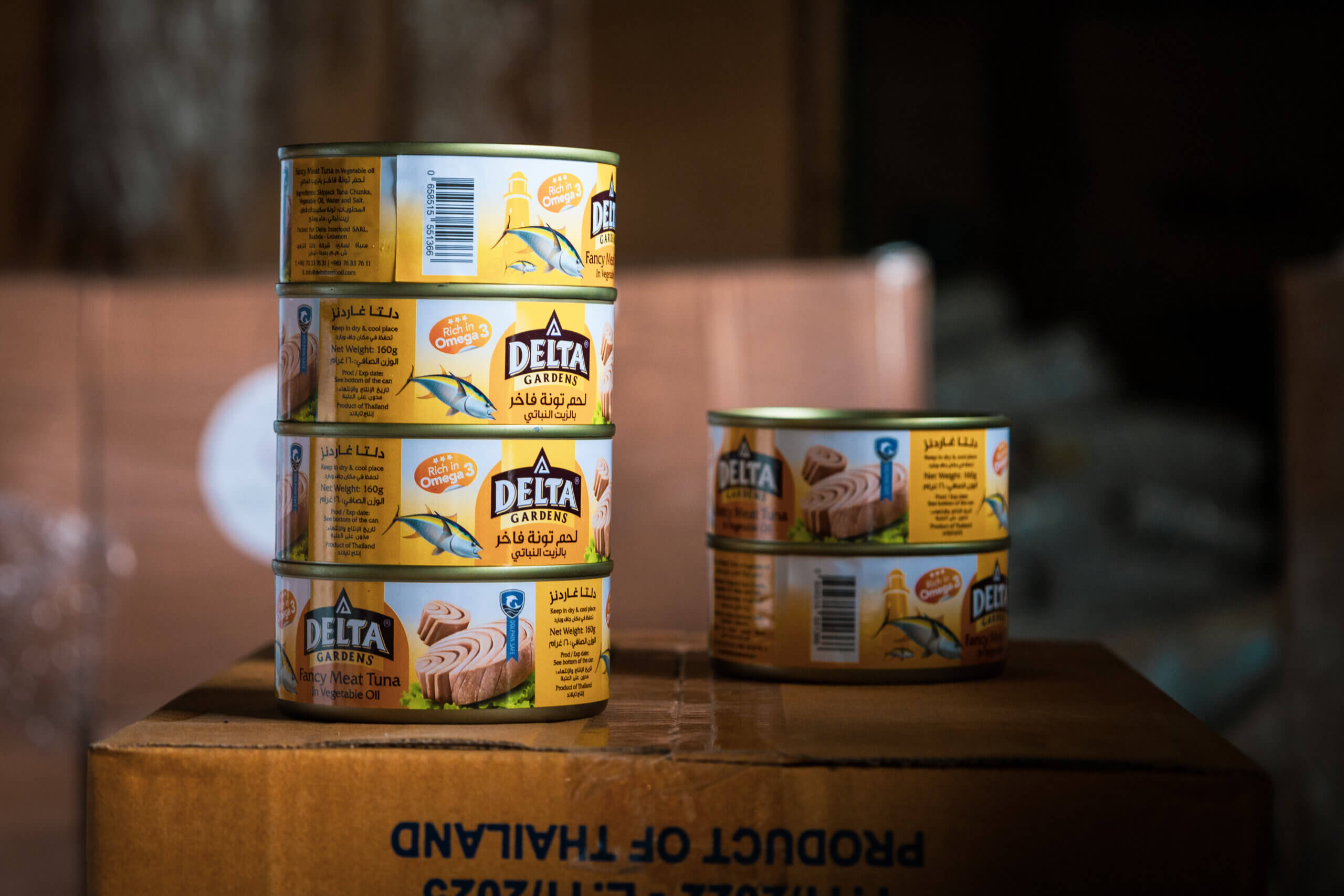
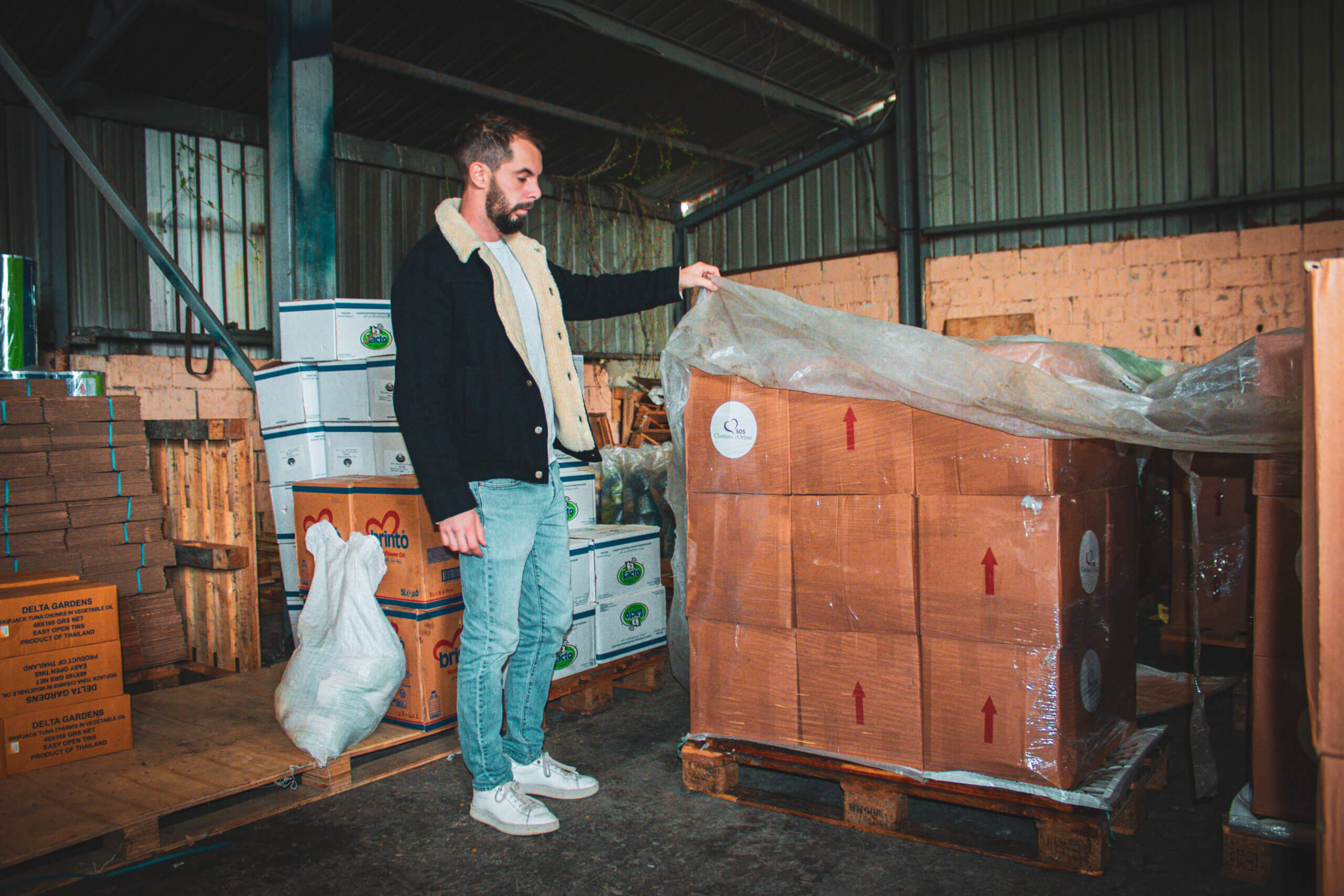
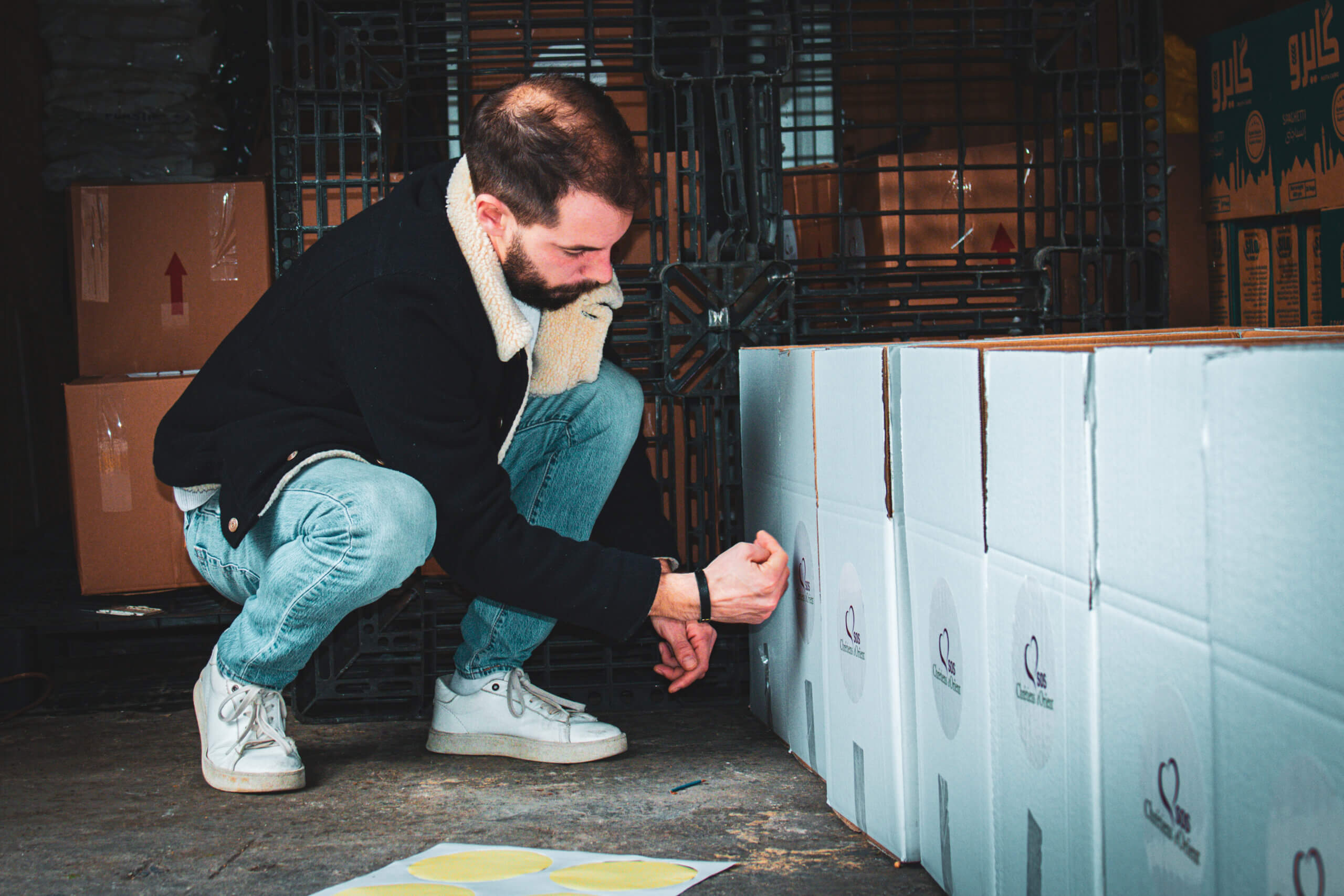
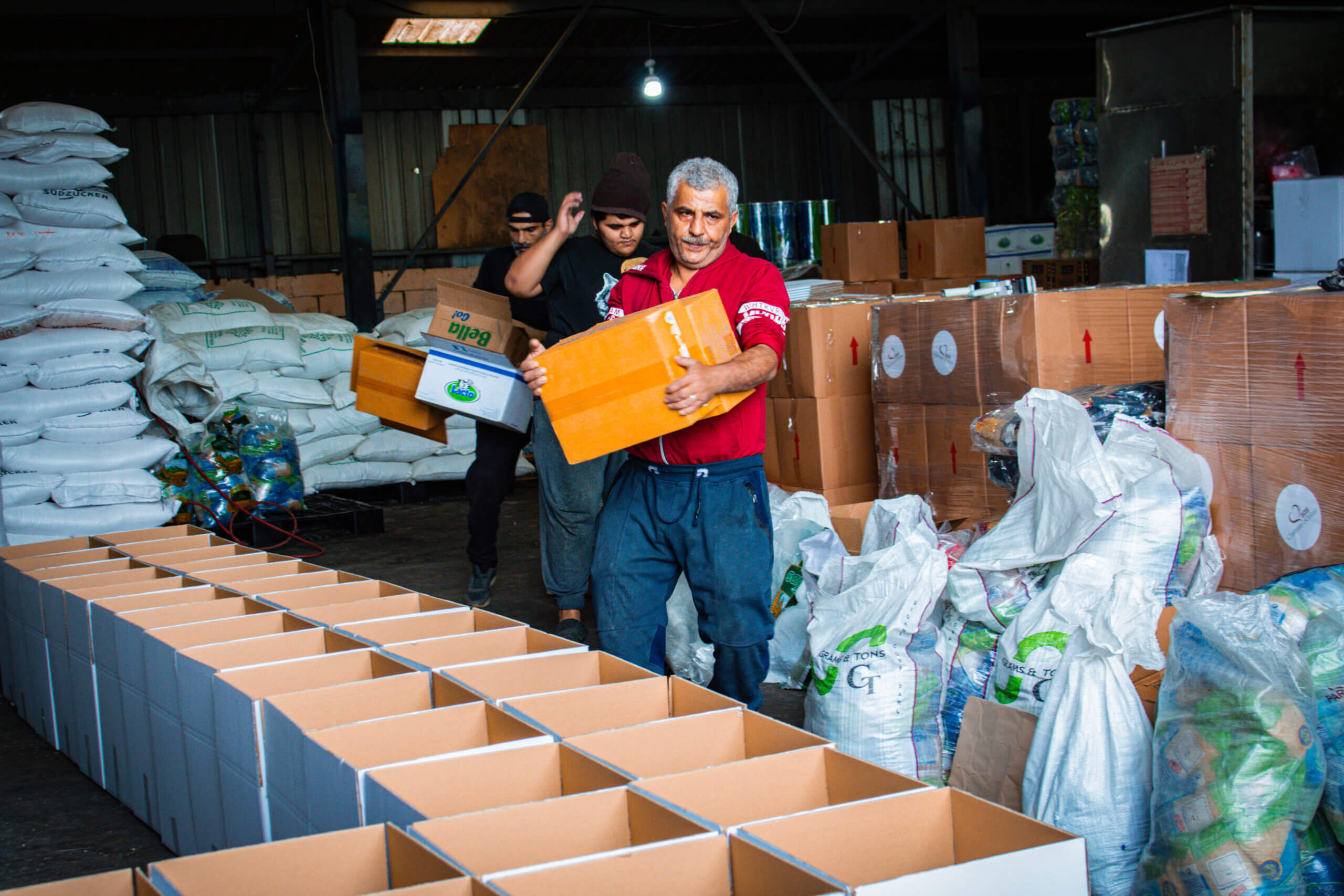
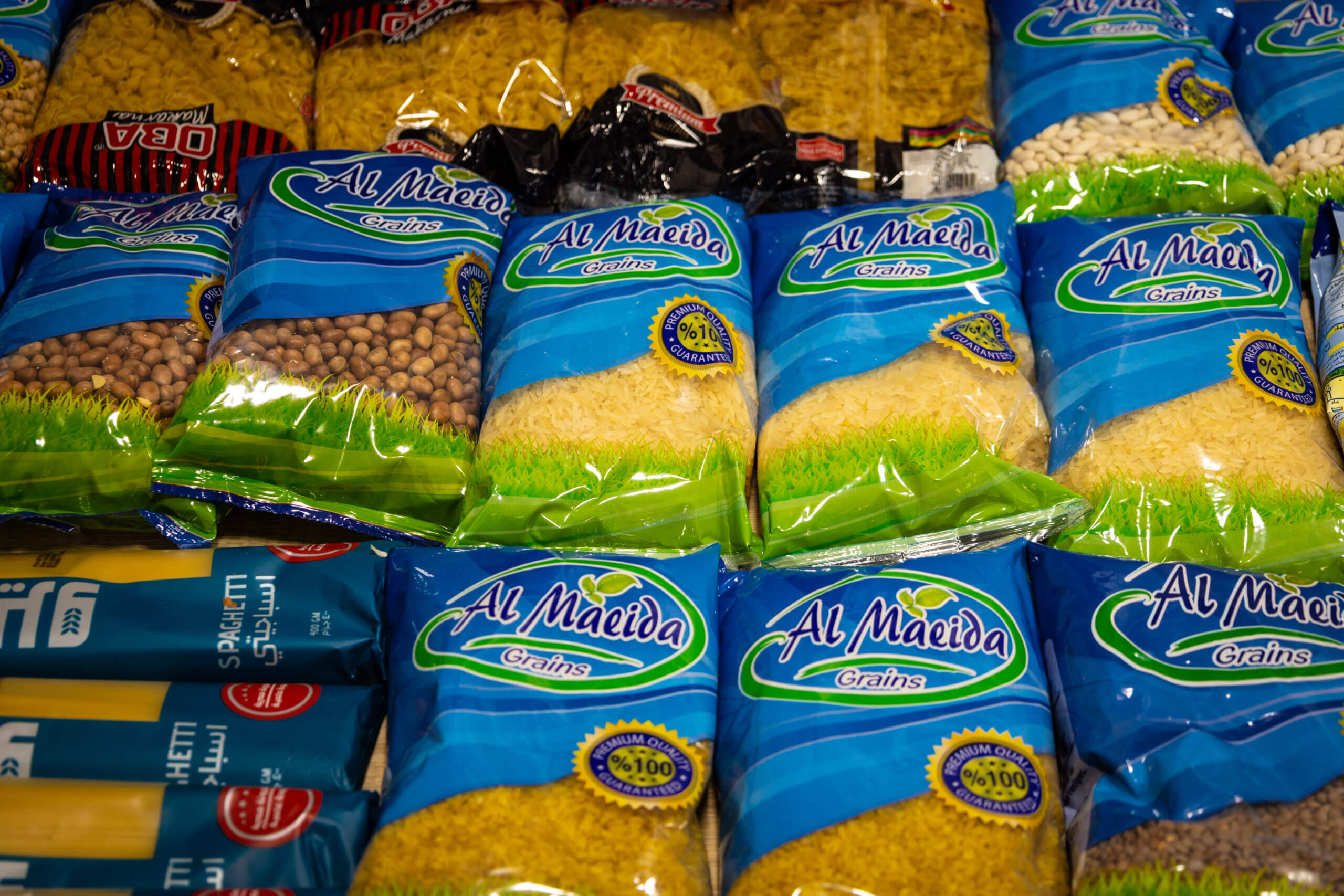
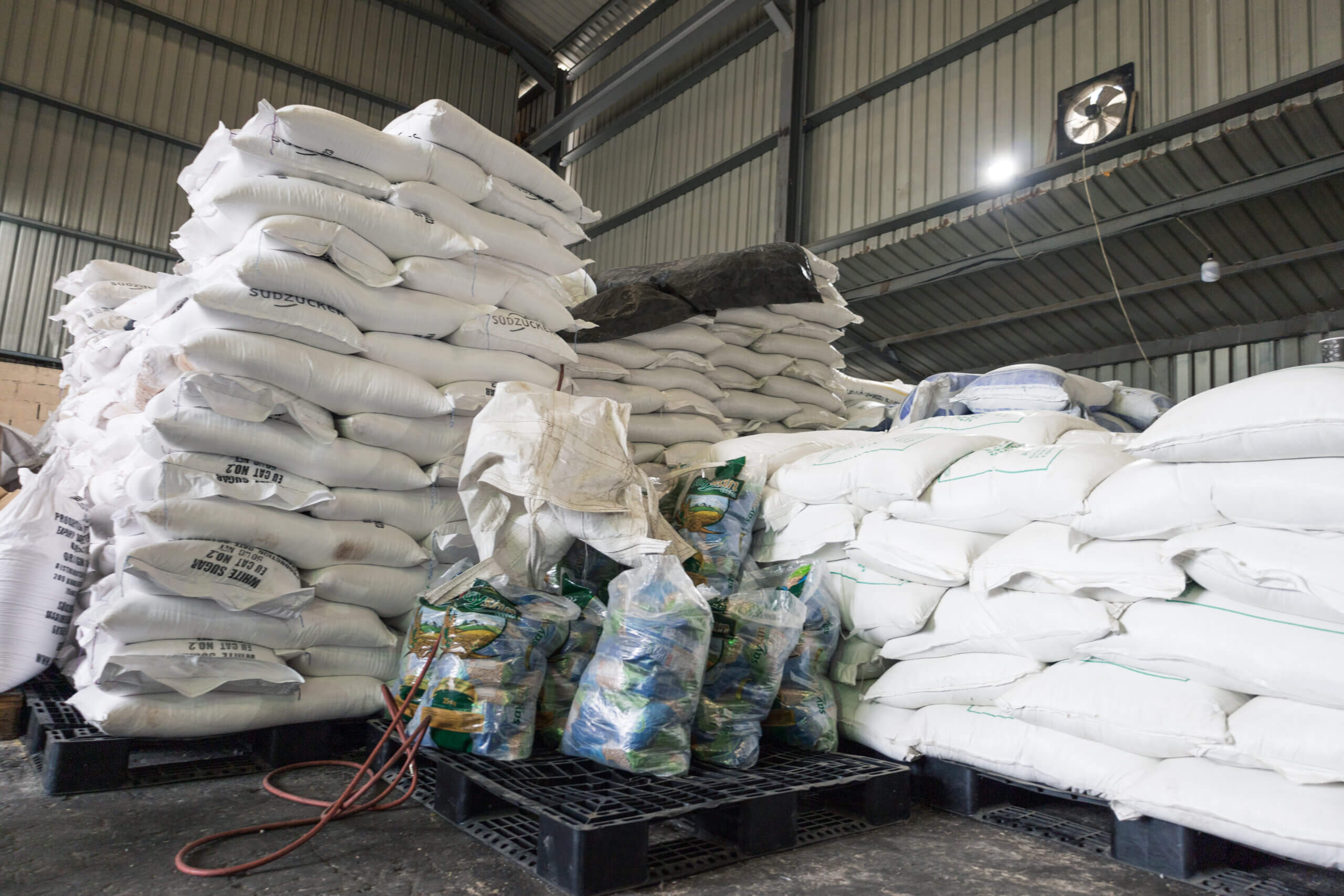


Brave men are already at work, silently. One places five cans of tuna per parcel, and another put one-kilogram bag of bulgur. This should allow each family to eat for two weeks.
“Our brothers in South Lebanon suffer harshly from the war. They live on the Lebanese border, in the same climate as in Gaza. They suffer each day from airstrikes, deafening noise of bombings, and shootings. They are forced to stay at home to avoid getting shot, so they cannot work anymore and struggle to find food and water. A Lebanese man died while providing food for his children, another while riding a scooter, a third was bombed in his van.”
It is hard to imagine the war because in Beirut or here, such tensions are not felt. Restaurants are bustling, schools are noisy, churches are open and animate.
How can such a contrast coexist in this country worthing the size of a French region?
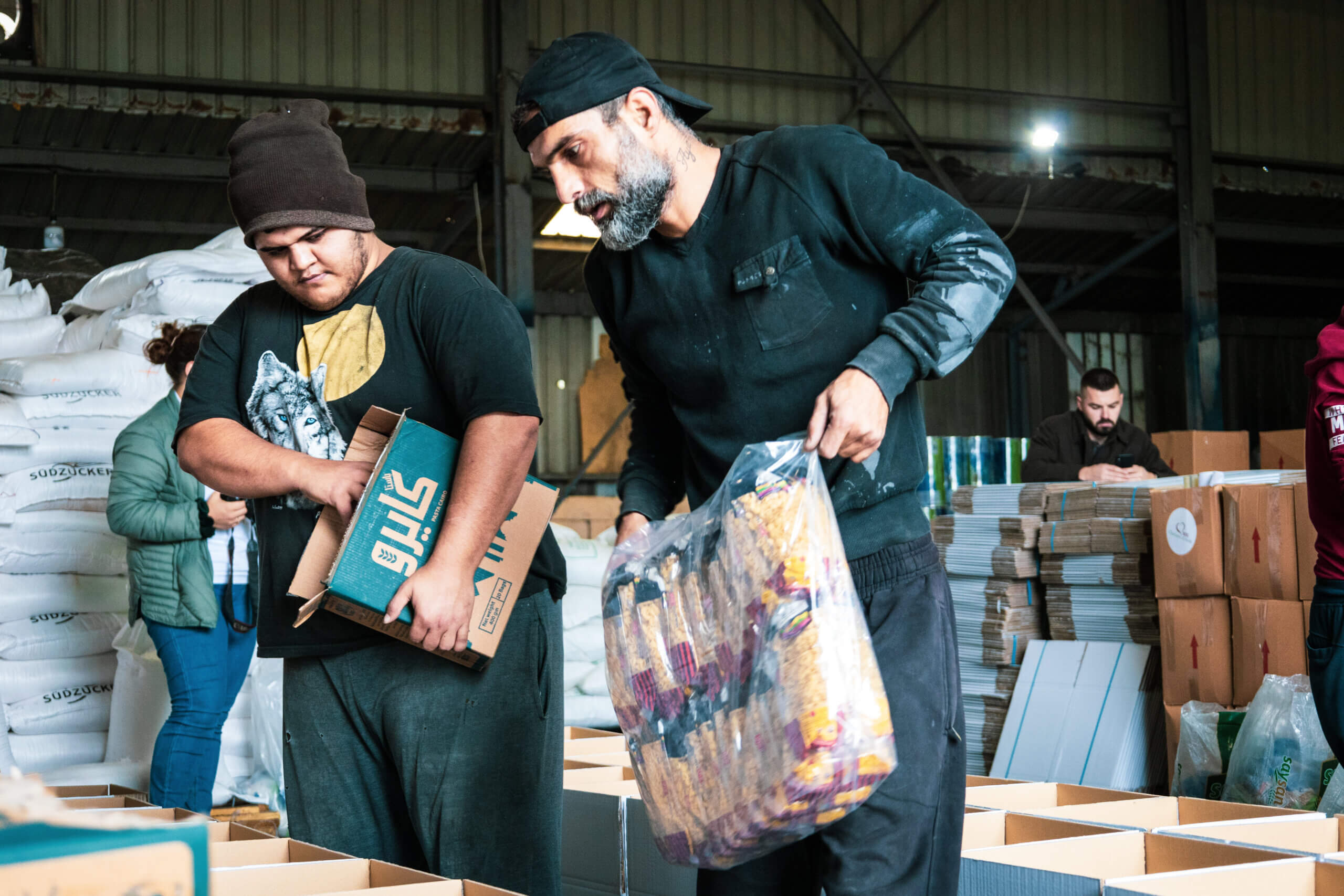
After several hours of packaging, three trucks are loaded with parcels flocked by the organization’s logo.
Arthur Lanternier, Head of Mission in Lebanon, leads the convoy. He is accompanied by Karen Achkouty, Project Manager of SOSCO mission in Lebanon. On the way, he explains to me that international humanitarian organizations are supposed to
act in this region too, but the tensions are colossal to a point that they have ceased their actions:
“The United Nations Interim Force In Lebanon, who are supposed to ensure peace. That’s why they are called peacekeepers. They try to discuss with local inhabitants, forces in place, and to negotiate, if possible, with the parties. But unfortunately, we can see that it is not enough to maintain stability in the south of Lebanon between Israel and Hezbollah.”
Our mission begins in Al-Qlei’a, in the countryside of Marjeyoun. Olive groves extend as far as the eye can see, forests cover the mountaines’ slopes, and the Litani River flows through the valley. A few kilometres away stand the Beaufort fortress’ ruins, a medieval castle built by the Crusaders in the Middle Ages.
The sun is shining brightly. The wind blows gently.
These pastoral scenes contrast shockingly with the villagers’ living conditions, as Pauline testifies:
“I live here with my four children and my husband. We are staying at our home because we have no other choice. At first, the children were afraid, now they get accustomed and count the shells and missiles that fall or are thrown. At night, we take refuge in a basement to sleep, with our children, away from the noise of bombings because it is deafening.
Sometimes strikes shake the house, it’s frightening! One day after the mass, a shell fell not far away, I jumped, so scared! We are living day-to-day and don’t know what the future holds for us.”
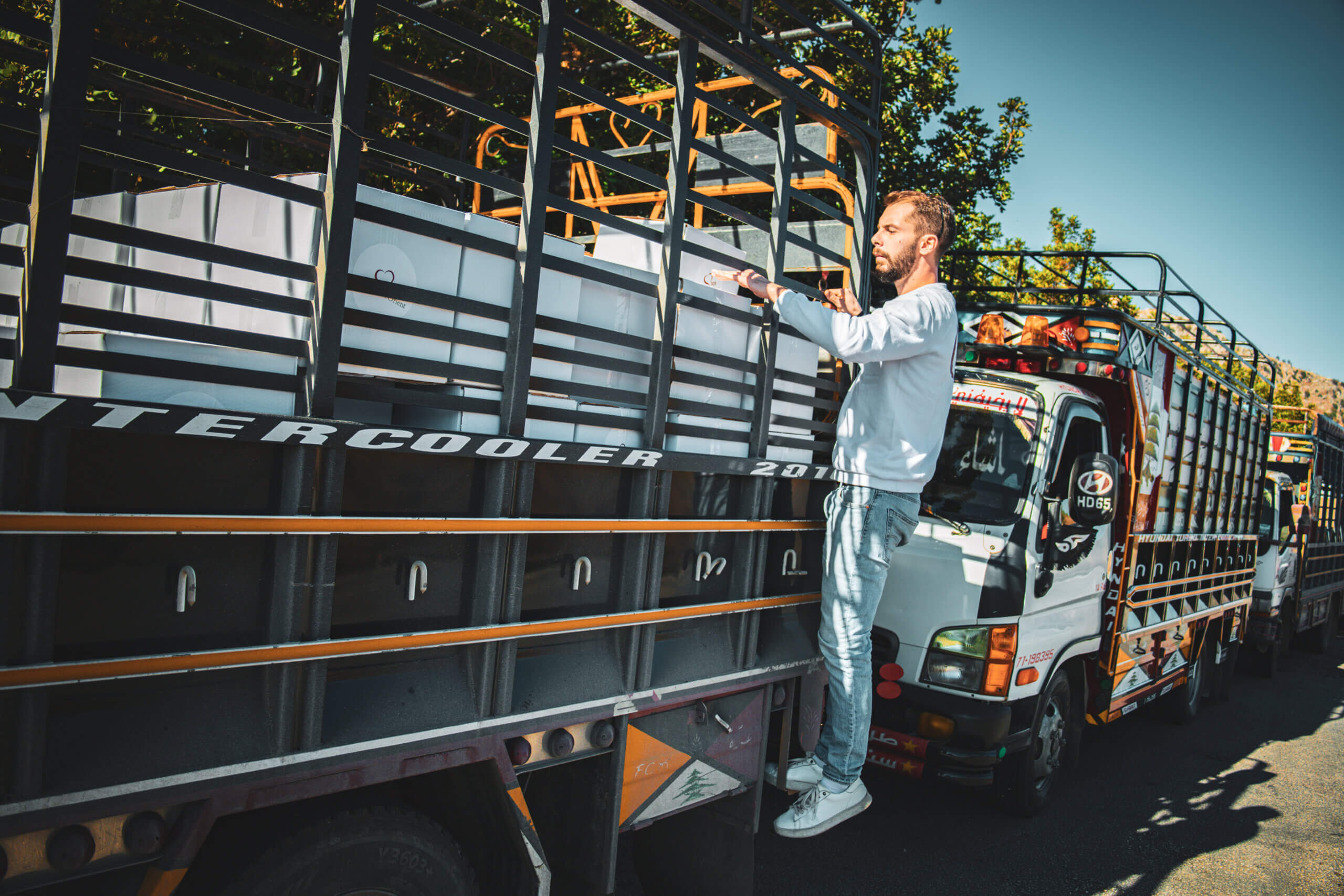
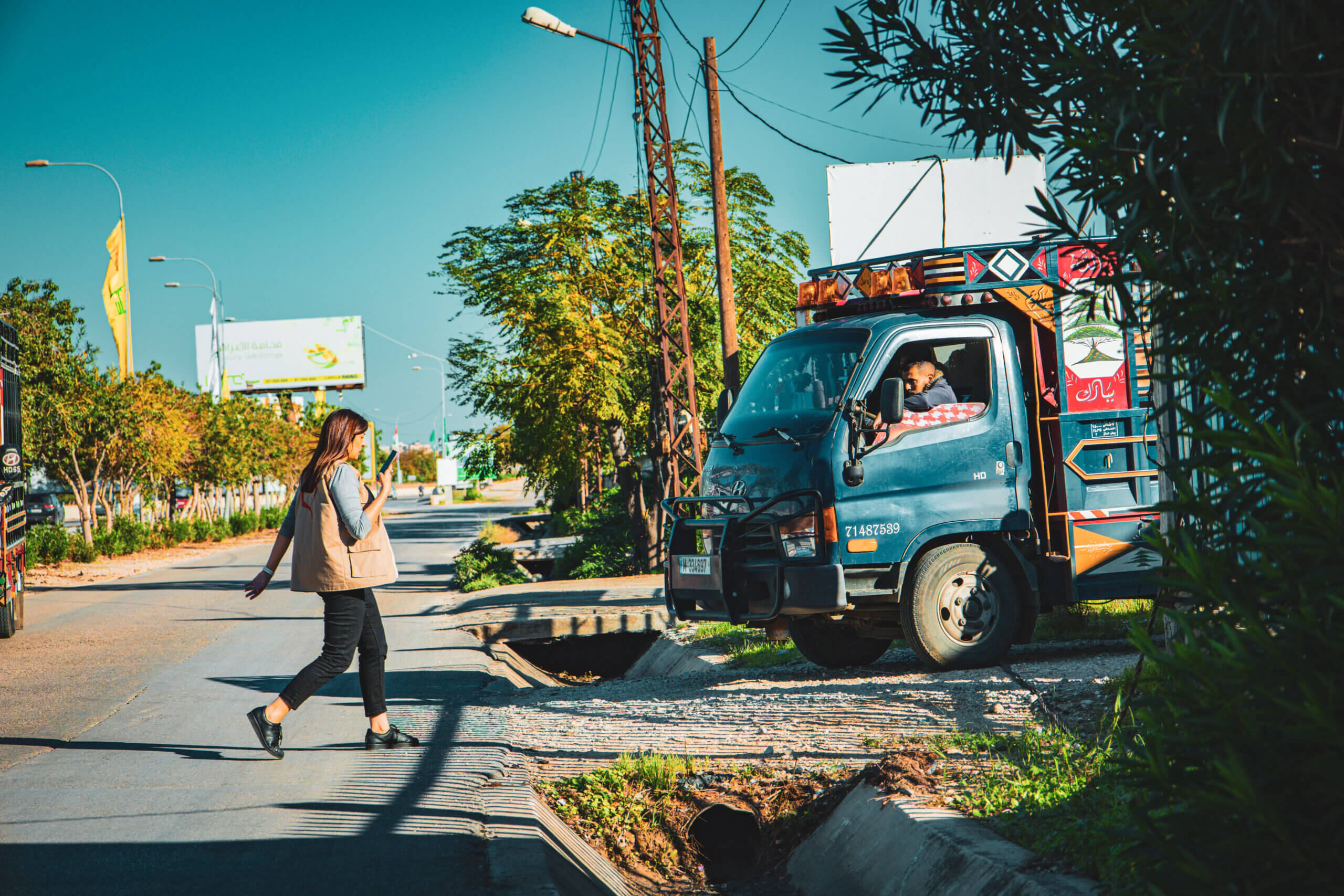


The retaliatory fire was swift, the explosion is louder. I truly realize that I am in the middle of a terrible conflict. This event does not hinder at all our very agitated activity.
No one seems to pay any attention to what just happened. So, tirelessly, village after village, we unpack the parcels that fathers of families come to retrieve silently.
I can imagine that anger is there, deep inside them, rooted; an anger related to injustice, An injustice that could break the soul and heart. But, no, they do not seem angry, charity and kindness appear on their faces, no sign of hatred.
They are led by faith.
“We fear nothing because as we are children of faith and hope. We fear nothing because we are confident that Jesus is with us.”
Sister Mona’s strength, a nun of the Franciscan Congregation of Saint Padre Pio Kawkaba village, is contagious and admirable. Jus like all these Lebanese’ strength who stayed to fight, or stayed to live simply.
In Saint-Charbel Square, on the heights of Debel village; an old man in a wheelchair who testifies :
“I am 86 years old; I have been in this wheelchair for 40 years; I was injured by Israeli bullets. Despite everything that happened in Debel, I didn’t leave and I won’t. I want to die at home. I am grateful for your kindness. France is the mother of Lebanon.”
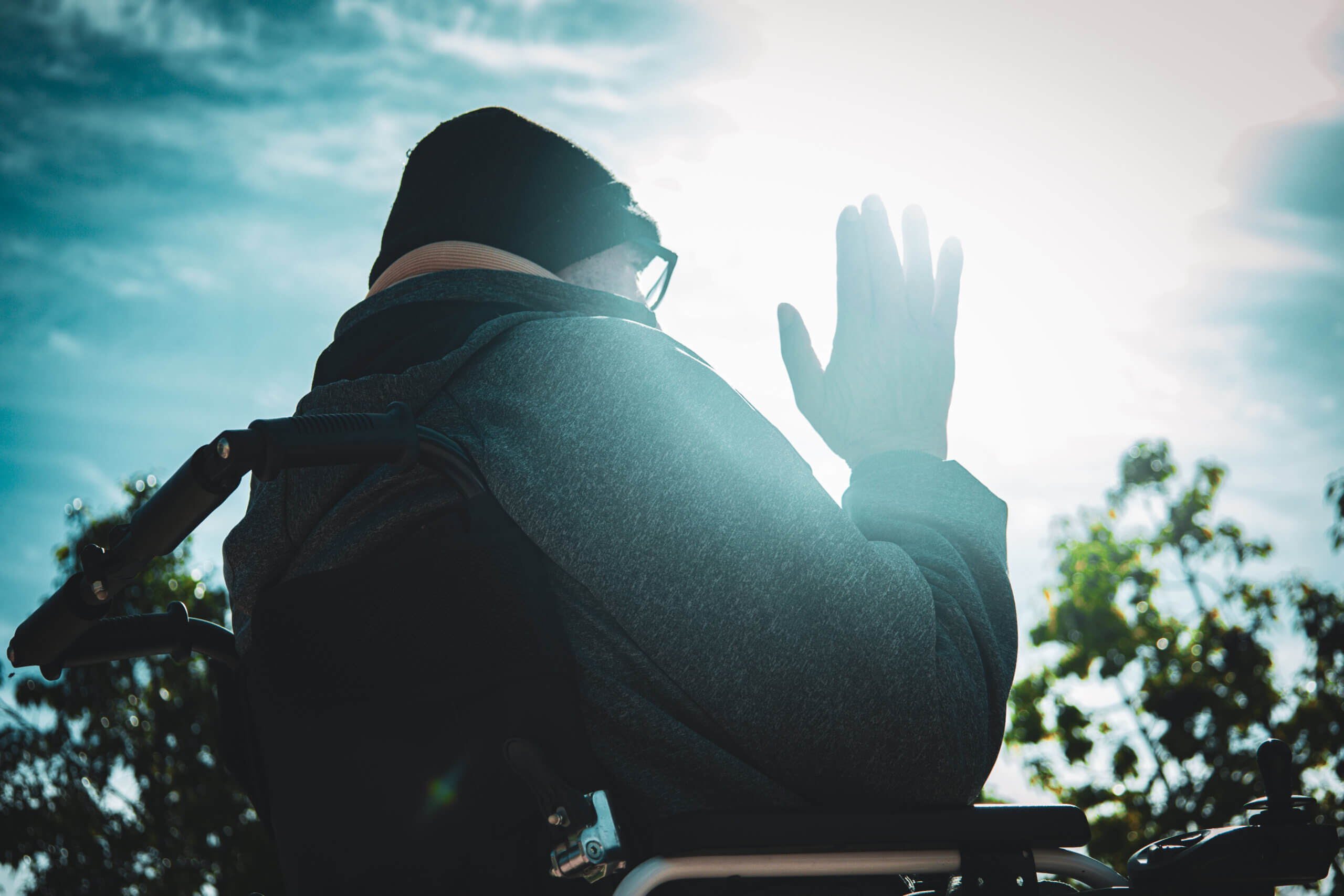
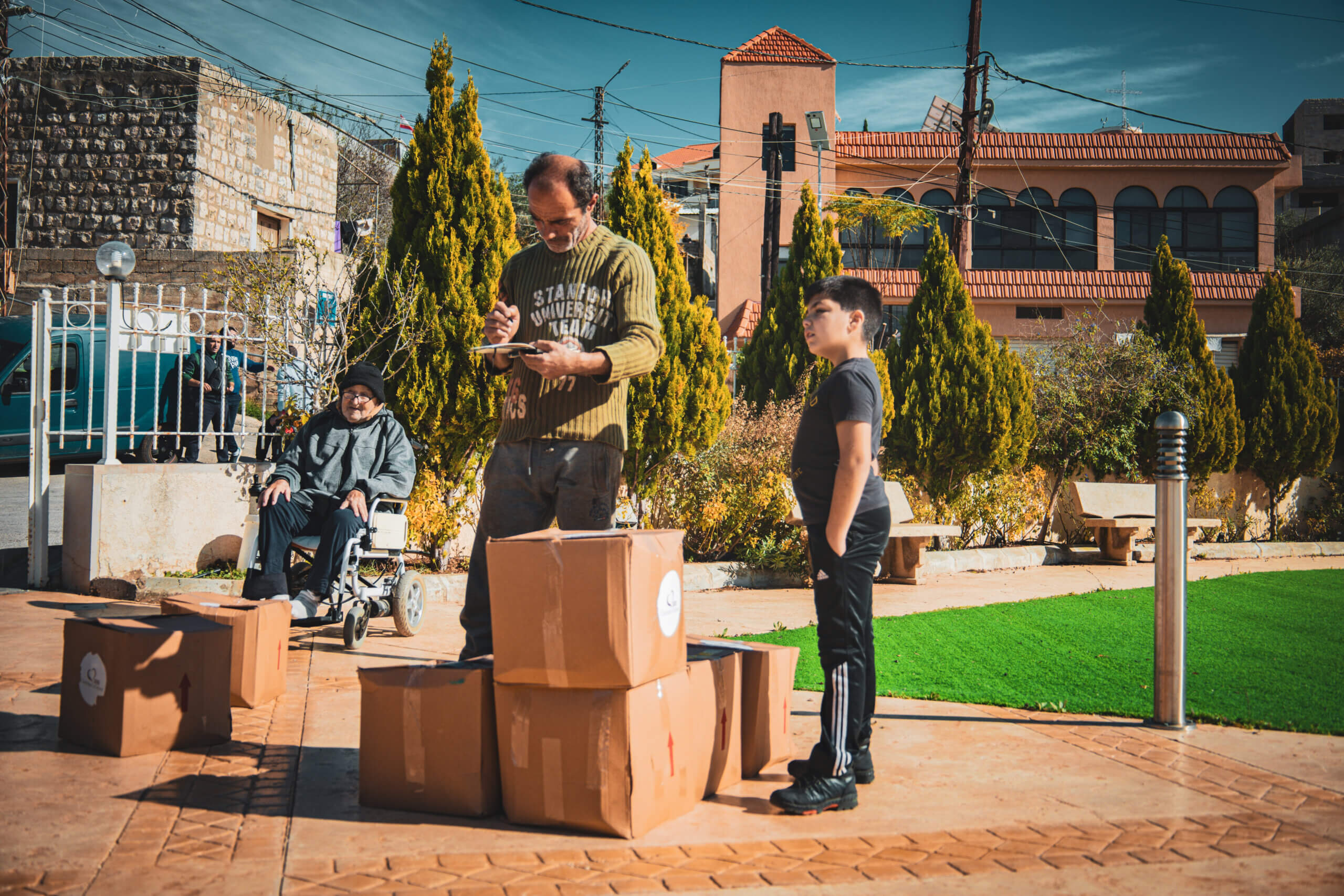
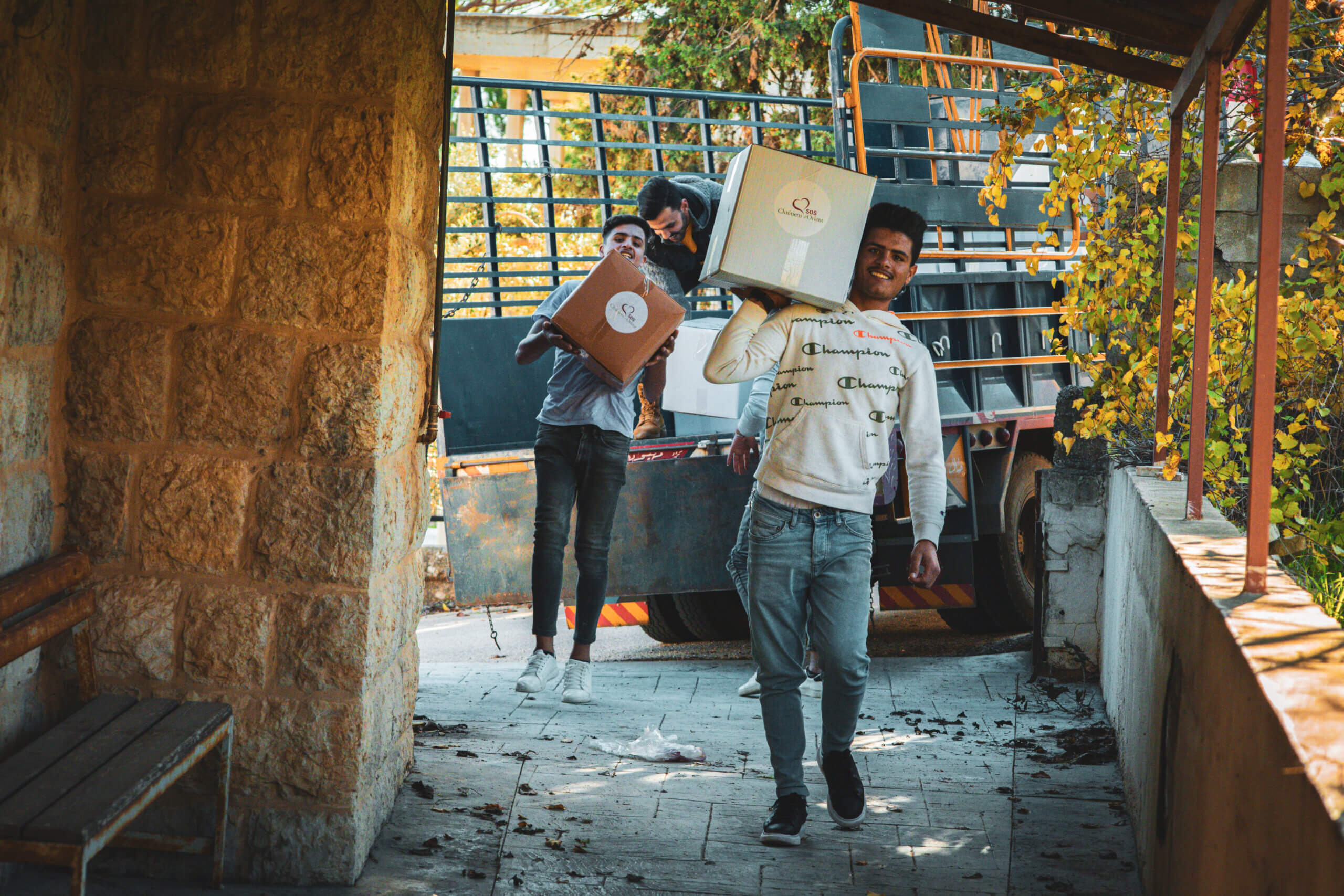
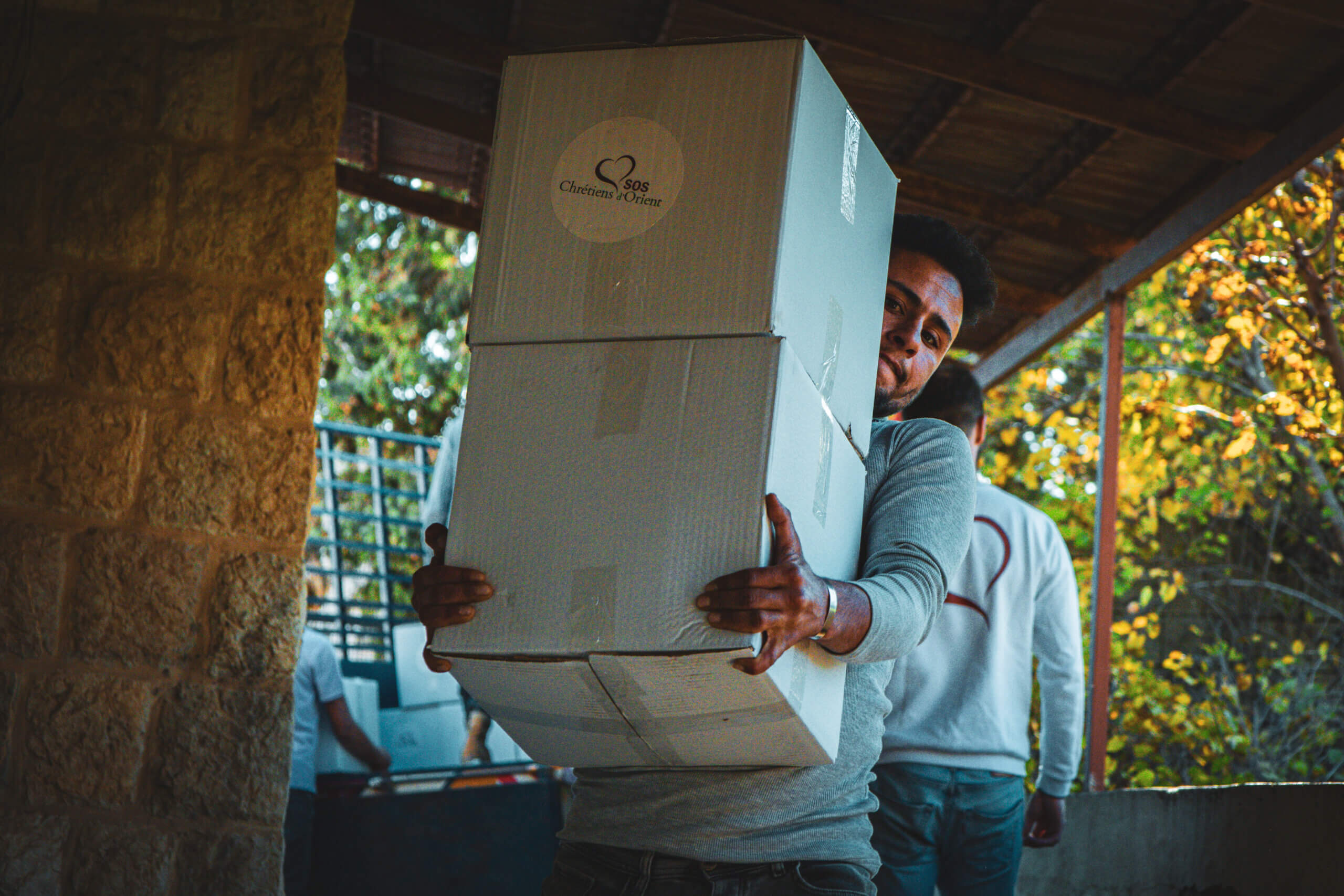
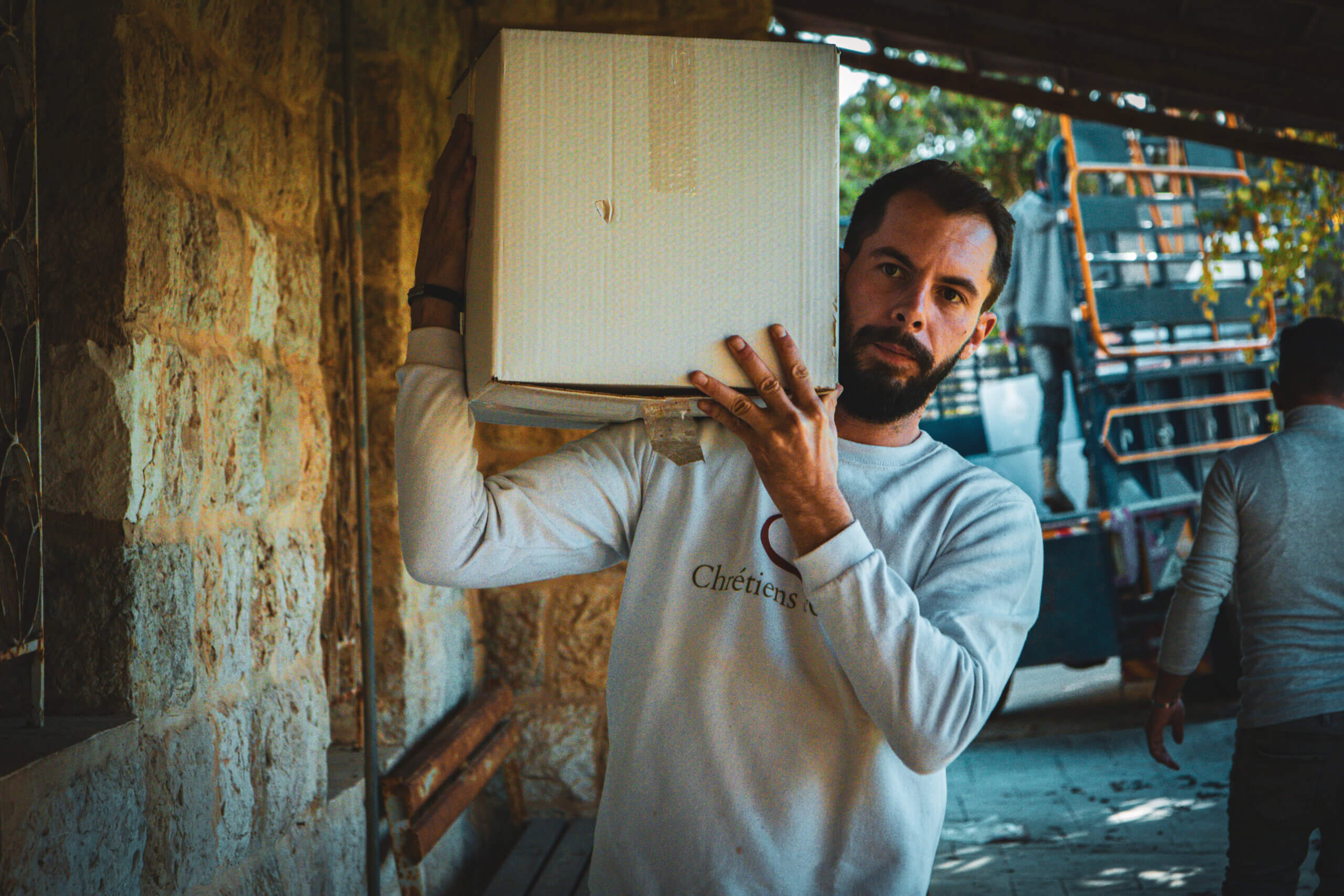
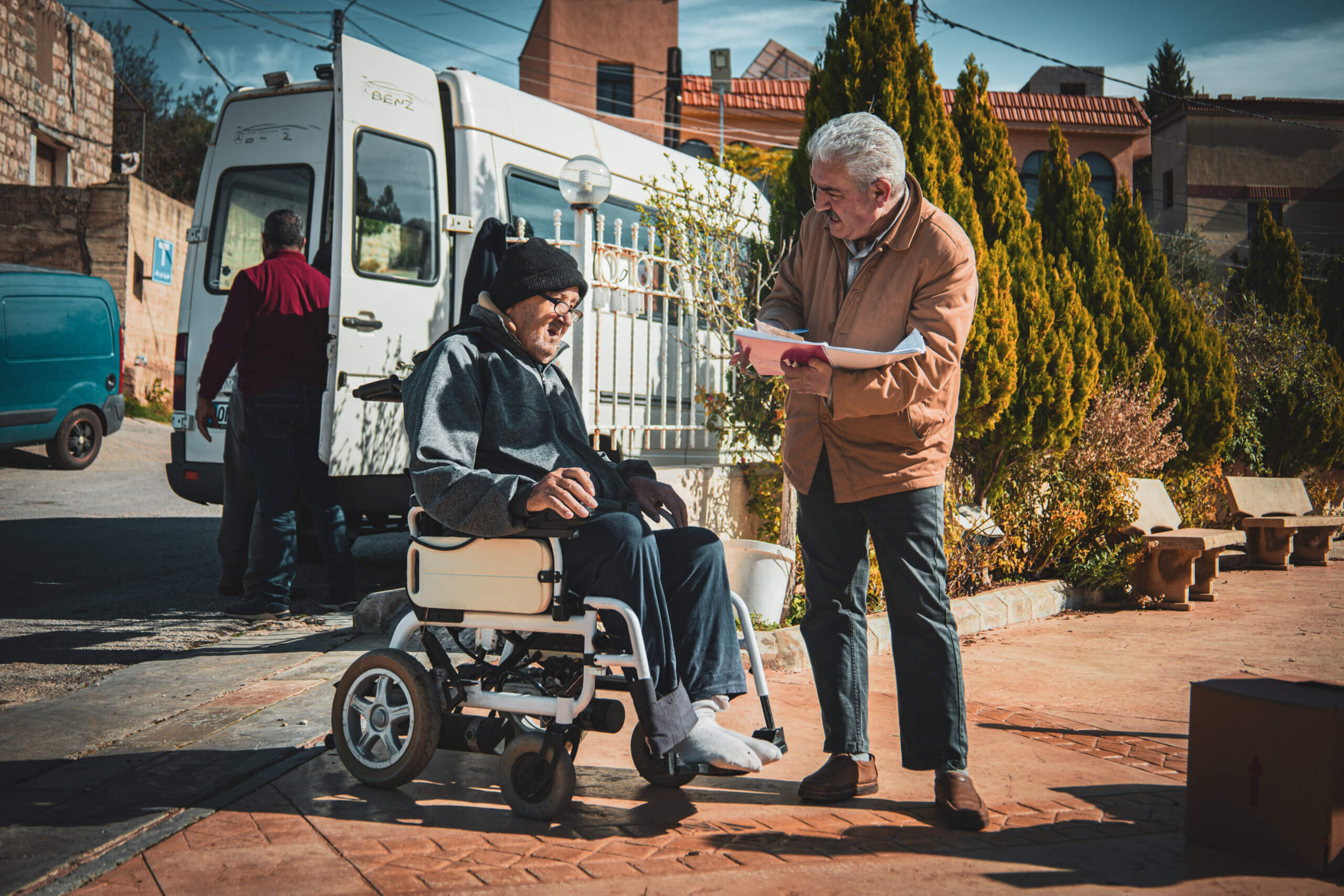
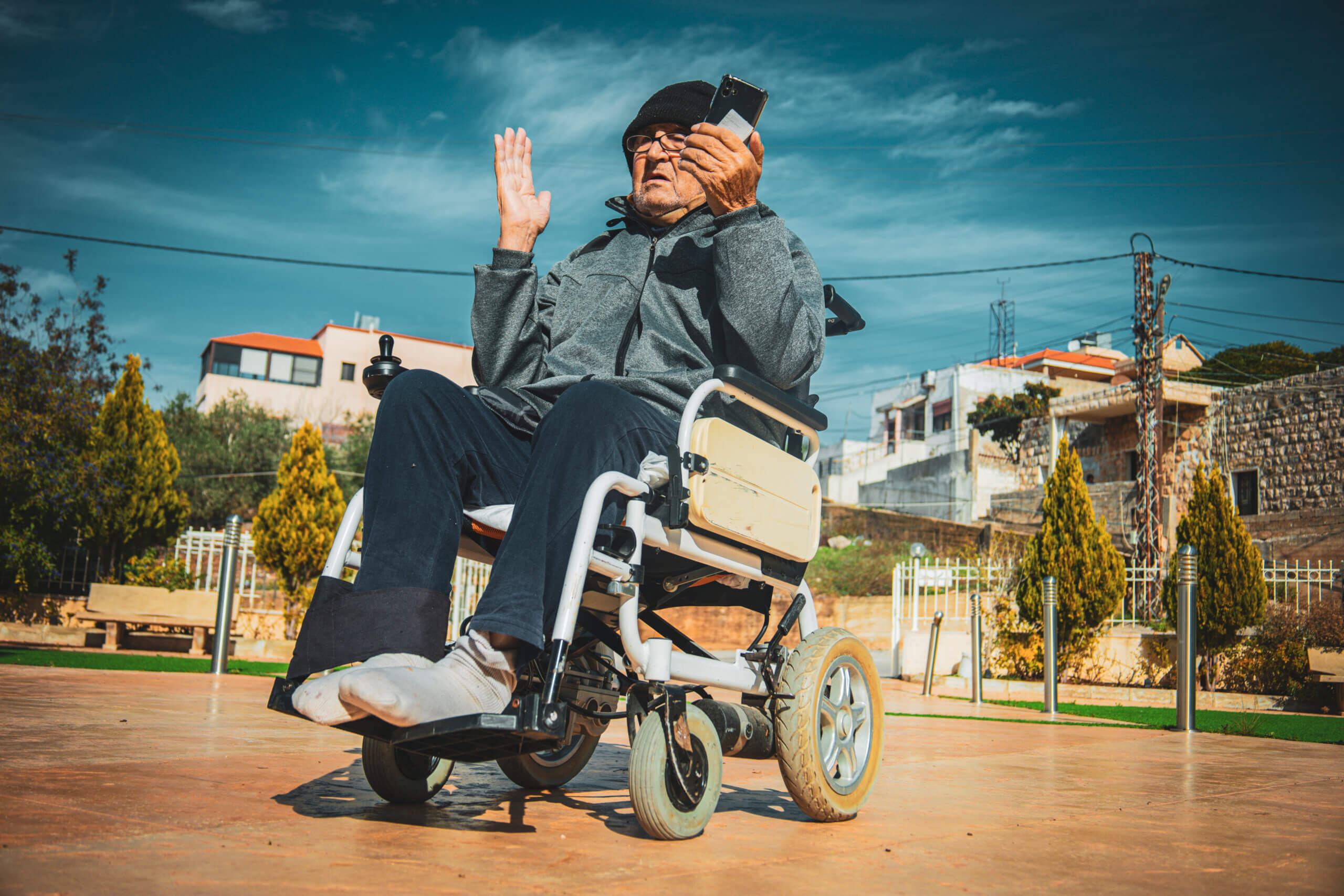
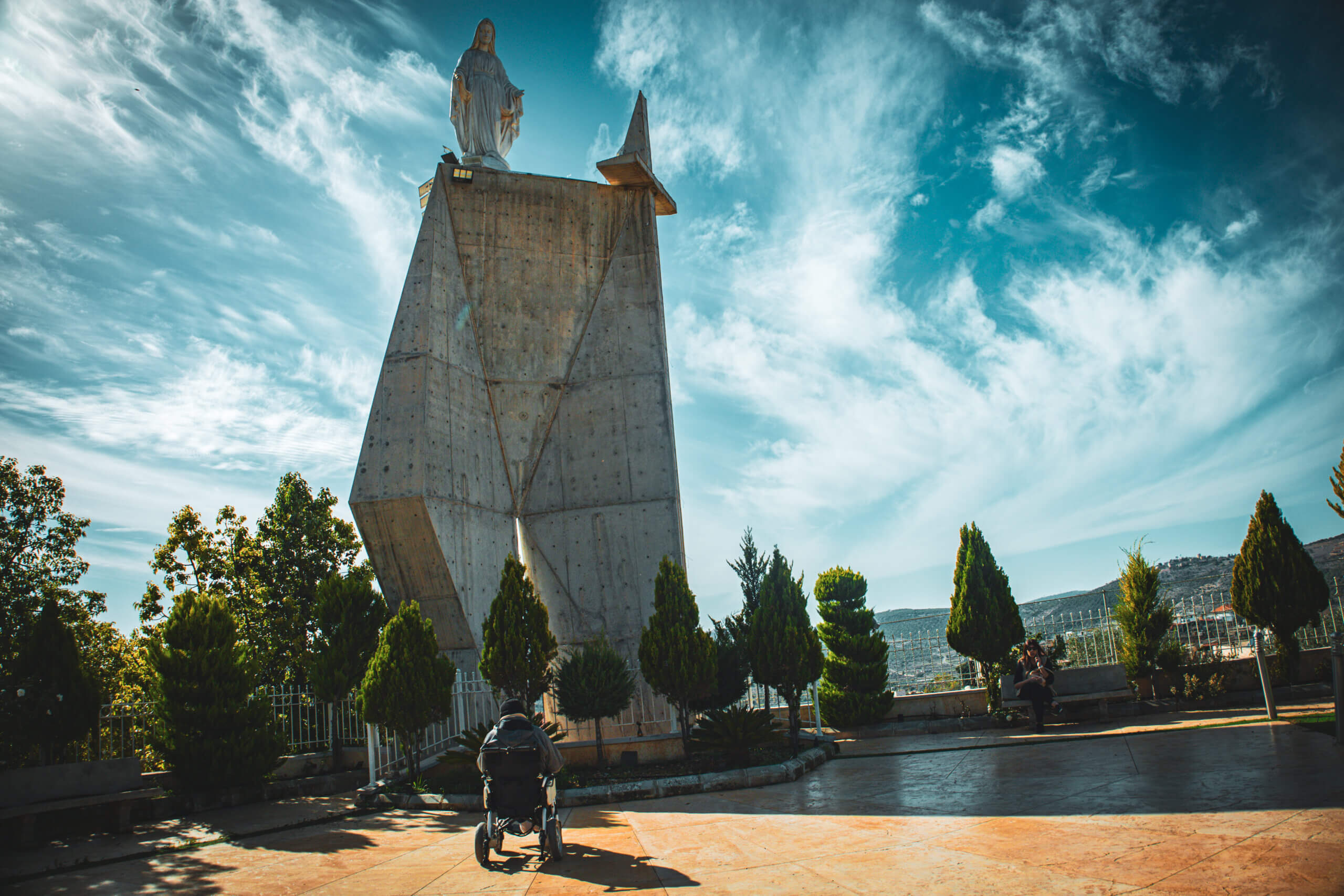


The death threatens Lebanese every day. Nevertheless, they have a deep attachment to the land, this land where they were born, land of their ancestors.
They face the injustice with a prefect resilience and an exemplary humility. They deserve so much. Today I am going back to France and I can testify to what I have seen. While the uncertainty is growing in the south of Lebanon, and every day constitutes a spark could ignite the region, these Lebanese need you, need your prayers. Today let’s not forget them.
Following their steps, let’s face the clash of weapons with faith.